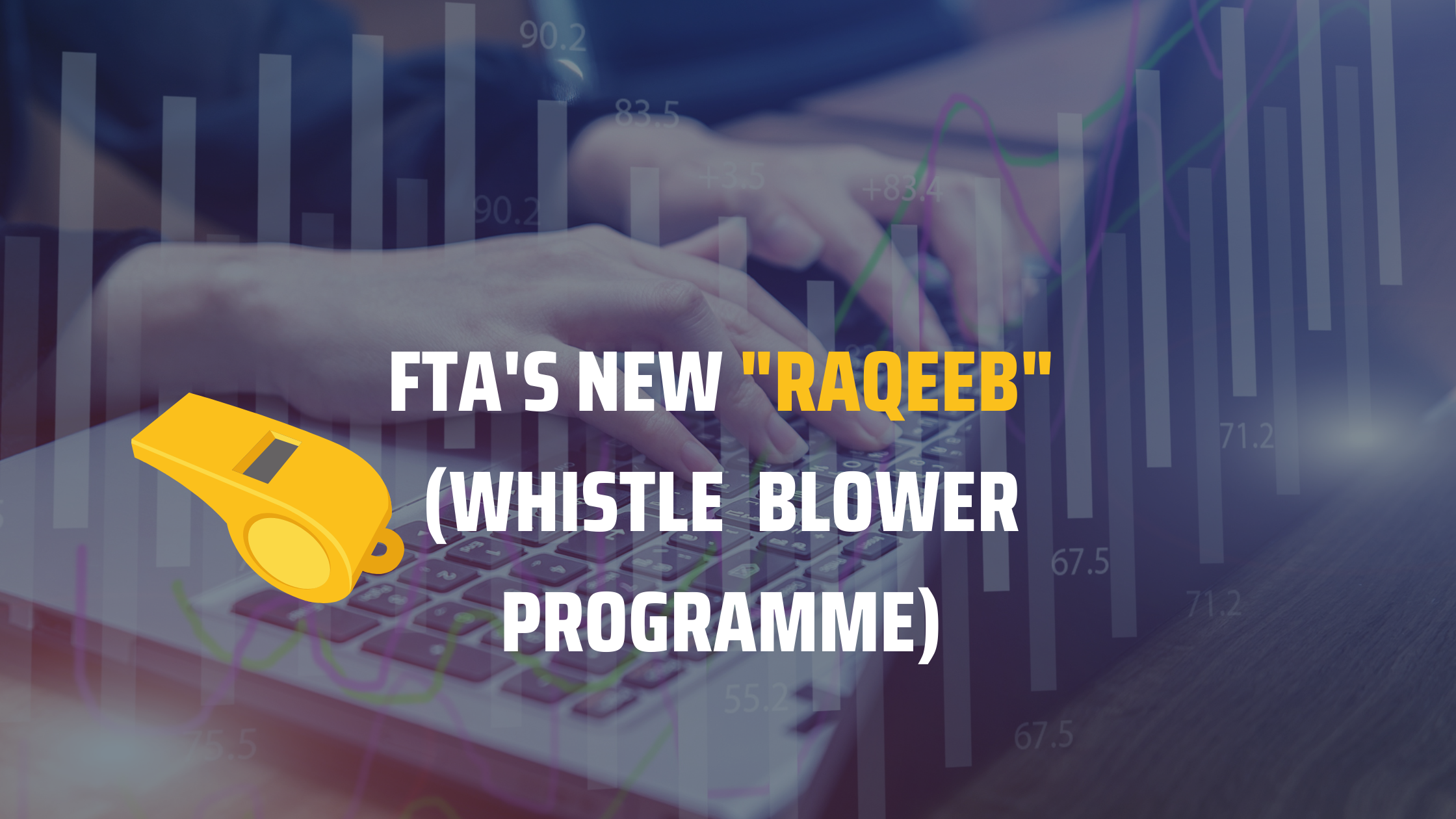UAE FTA introduces a new mechanism, the RAQEEB Whistleblower Program for tackling tax violations and evasions.
- The new programme will provide a framework for the FTA to review, and process leads relating to tax non-compliances. It includes monetary rewards for informants to encourage members of society to report tax non-compliance.
- The FTA has released a guide to better understand the programme and procedures.
SCOPE
The leads covered under the Raqeeb Programme include suspected tax evasion (VAT and EXCISE TAX) and suspected non-compliances with tax procedures such as invalid tax invoices incorrect amounts mentioned on tax invoices. The programme does NOT cover Economic Substance Regulation (ESR) non-compliance.
The whistleblowing form cannot be submitted anonymously to ensure validation of the authenticity of the information received. However, confidentiality provisions have been put in place and the identity of the informant will remain confidential and protected by the FTA.
CONDITIONS FOR MONETARY REWARDS
- The information provided is credible and not obtained by FTA previously;
- The whistleblowing form is filled accurately and completely;
- The tax amounts collected from the reported business exceed AED 50,000;
- The reported person has exhausted all forms of objections and appeals.
It is pertinent to note that FTA employees and their relatives up to forth degree of consanguinity will not be eligible for monetary rewards. However, they will still be able to report non-compliances under this programme.
IMPACT OF THE NEW PROGRAMME
- The introduction of the Whistleblower program has a significant impact on businesses in UAE. Businesses should rectify any identified errors or omissions at the earliest voluntarily before any stakeholder reports the non-compliance to the FTA.
- Further, the businesses should have regular checks and reviews to ensure that they are in compliance with the VAT and Excise Tax laws.
- An inspection/ audit from FTA under the Whistleblower program may increase the possibility that any errors by the business will be treated as tax evasion, potentially resulting in higher penalties and imprisonment.
